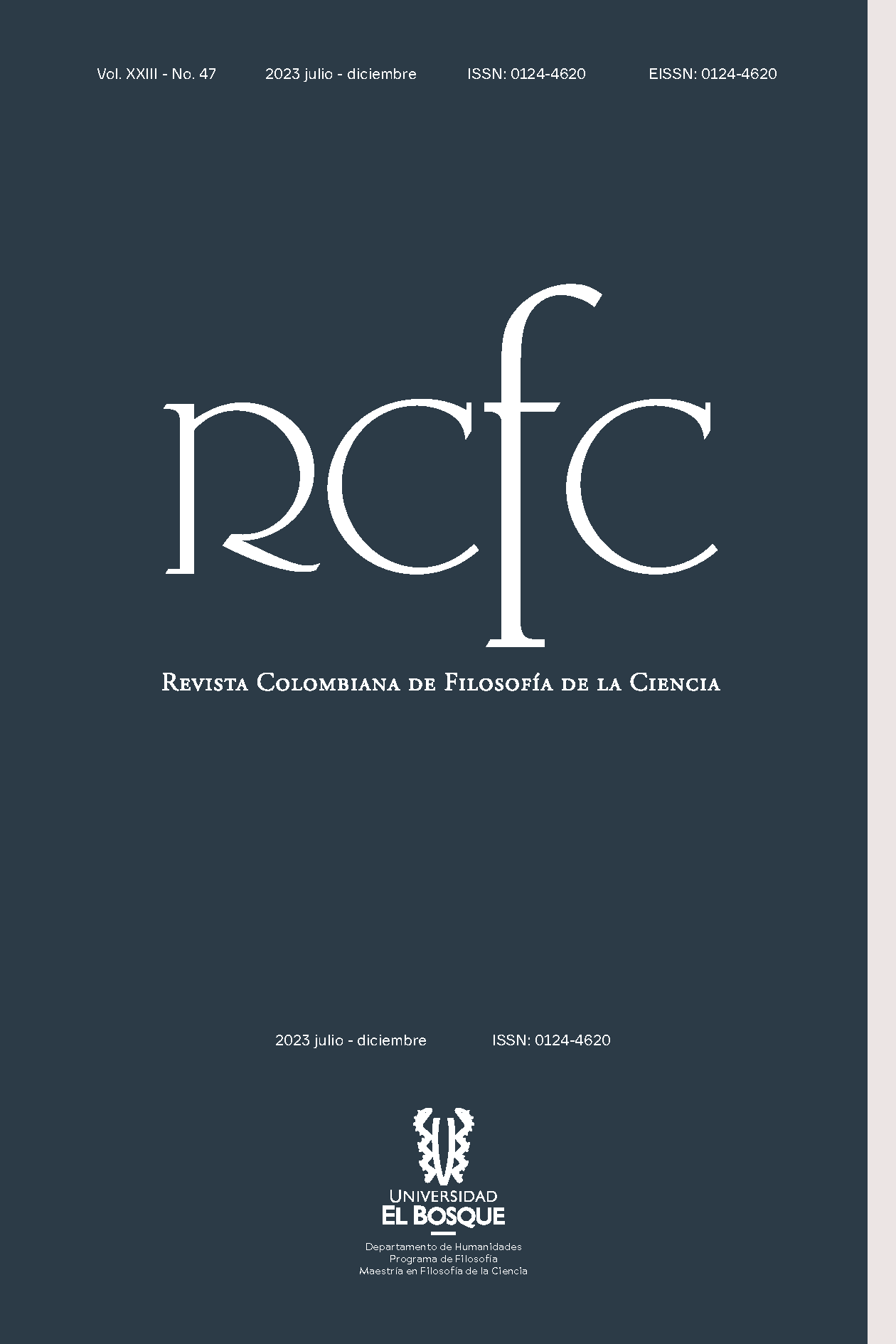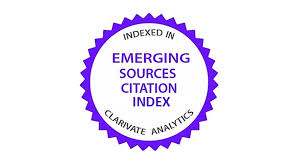Critical Assessment of Epistemological, Ideological and Political Commitments of Neuroeconomics Applied to Public Policy
DOI:
https://doi.org/10.18270/rcfc.v23i47.4194Keywords:
Neuroscience, Neuroeconomics, Neuroliberalism, Philosphy of science, Psychology, Cognitive science, Public policyAbstract
In this article, we highlight certain assumptions not made explicit in the notion of the human individual upon which the theoretical approaches of neuroeconomics and behavioral economics rely to develop their research and intervention programs. We also address the epistemological, ideological, and political commitments from which they conceive, study, and intervene in human behavior. Instead of an individual resulting from a socialization process, what is presented is an isolated brain with numerous attributed cognitive functions, whose behavior can be altered due to “accidents” in its evolution as the governing organ of behavior. This approach allows for the construction of public policy proposals based on the so-called “libertarian paternalism.” A potential control mechanism is highlighted, aiming to shape the various spaces of individuals' daily lives so that their aggregate behaviors align as closely as possible with the ideal rational entities of the neoclassical economic model.
Downloads
References
Abi-Rached., Joelle M., and Nikolas Rose. “The Birth of the Neuromolecular Gaze.” History of the Human Sciences 23.1 (2010): 11-36. <https://doi.org/10.1177/0952695109352407>
Baez, Sandra et ál. “Outcome-Oriented Moral Evaluation in Terrorists”. Nature Human Behaviour 1.6 (2017): 0118. <https://doi.org/10.1038/s41562-017-0118>
Bickle, John. “Reducing Mind to Molecular Pathways: Explicating the Reductionism Implicit in Current Cellular and Molecular Neuroscience”. Synthese 151.3 (2006): 411-434. <https://doi.org/10.1007/s11229-006-9015-2>
Bloise, Leonardo., Arias, Carlos., y Guillermo Folguera. “Omisiones y simplificaciones en el estudio de la cognición moral. Análisis de casos paradigmáticos desde la Filosofía de la Biología”. Filosofía e Historia de la Ciencia en el Cono Sur: Selección de Trabajos del XI Encuentro AFHIC. Filosofía e Historia de la Ciencia en el Cono Sur (2020): 109-122. <http://hdl.handle.net/11336/166815>
Camerer, Colin F. “Goals, Methods, and Progress in Neuroeconomics”. Annual Review of Economics 5.1 (2013): 425-455. <https://doi.org/10.1146/annurev-economics-082012-123040>
Churchland, Paul M. “Eliminative Materialism and the Prepositional Attitudes”. Contemporary Materialism. Routledge, 2002. 166-185.
Consejo Económico y Social. “El presidente Alberto Fernández anunció la creación de la Unidad de Ciencias del Comportamiento y Políticas Públicas”. Argentina.gob.ar. N.p., 20 jul. 2021. Web. <https://www.argentina.gob.ar/noticias/el-presidente-alberto-fernandez-anuncio-la-creacion-de-la-unidad-de-ciencias-del>
Dolan, P. et ál. “Influencing Behaviour: The Mindspace Way”. Journal of Economic Psychology 33.1 (2012): 264-277. <https://doi.org/10.1016/j.joep.2011.10.009>
Dow Schüll, Natasha, y Caitlin Zaloom. “The Shortsighted Brain: Neuroeconomics and the Governance of Choice in Time”. Social Studies of Science 41.4 (2011): 515-538. <https://doi.org/10.1177/0306312710397689>
Evans, Jonathan St. B. T. “Dual-Processing Accounts of Reasoning, Judgment, and Social Cognition”. Annual Review of Psychology 59.1 (2008): 255-278. <https://doi.org/10.1146/annurev.psych.59.103006.093629>
Gallagher, Shaun. “Decentering the Brain: Embodied Cognition and the Critique of Neurocentrism and Narrow-minded Philosophy of Mind”. Faculty of Law, Humanities and the Arts-Papers. 14.1 (2018): 8-21. <https://ro.uow.edu.au/lhapapers/3784>
Gibson, Eleanor Jack., y Anne D. Pick. An Ecological Approach to Perceptual Learning and Development. USA: Oxford University Press, 2000.
Hutto, Daniel D. “Psychology Unified: from Folk Psychology to Radical Enactivism”. Review of General Psychology 17.2 (2013): 174-178. <https://doi.org/10.1037/a0032930>
Jones, Rhys., Jessica Pykett., y Mark Whitehead. “Governing Temptation: Changing Behaviour in an Age of Libertarian Paternalism”. Progress in Human Geography 35.4 (2011): 483-501. <https://doi.org/10.1177/0309132510385741>
Kahneman, Daniel. “Maps of Bounded Rationality: Psychology for Behavioral Economics”. American Economic Review 93.5 (2003): 1449-1475. <https://www.doi.org/10.1257/000282803322655392>
Leggett, Will. “The Politics of Behaviour Change: Nudge, Neoliberalism and the State”. Policy & Politics 42.1 (2014): 3-19. <https://doi.org/10.1332/030557312X655576>
Marshall, Peter J. “Relating Psychology and Neuroscience: Taking up the Challenges”. Perspectives on Psychological Science 4.2 (2009): 113-125. <https://doi.org/10.1111/j.1745-6924.2009.01111.x>
Melnikoff, David E., y John A. Bargh. “The Mythical Number Two”. Trends in Cognitive Sciences 22.4 (2018): 280-293. <https://doi.org/10.1016/j.tics.2018.02.001>
Novas, Carlos, y Nikolas Rose. “Genetic Risk and the Birth of the Somatic Individual”. Economy and Society 29.4 (2000): 485-513. <https://doi.org/10.1080/03085140050174750>
Osman, Magda et ál. “Learning from Behavioural Changes That Fail”. Trends in Cognitive Sciences 24.12 (2020): 969-980. <https://doi.org/10.1016/j.tics.2020.09.009>
Ribes Iñesta, Emilio. “Las psicologías y la definición de sus objetos de conocimiento”. Revista Mexicana de análisis de la conducta 26.3 (2000): 367-383. <https://doi.org/10.5514/RMAC.V26.I3.23502>
_____. “Behavior Is Abstraction, Not Ostension: Conceptual and Historical Remarks on the Nature of Psychology”. Behavior and Philosophy 32.1 (2004): 55-68. <http://www.jstor.org/stable/27759471>
_____. El estudio científico de la conducta individual: Una introducción a la teoría de la psicología. Ed. Morales Saavedra, José. México: El Manual Moderno, 2018.
_____. “El objeto de la psicología como ciencia: relación sin ‘cuerpo-substancia’”. Acta Comportamentalia: Revista Latina De Análisis Del Comportamiento 27.4 (2019): 463-480. <https://revistas.unam.mx/index.php/acom/article/view/72026>
Rose, Nikolas S., y Joelle M. Abi-Rached. Neuro: The New Brain Sciences and the Management of the Mind. Princeton, N.J: Princeton University Press, 2013.
Rose, Nikolas. “The Politics of Life Itself”. Theory, Culture & Society 18.6 (2001): 1-30. <https://doi.org/10.1177/02632760122052020>
Ryle, Gilbert. El concepto de lo mental. Argentina: Paidós, 1967.
Sampson, Edward E. “Cognitive Psychology as Ideology”. American psychologist 36.7 (1981): 730-743. <https://psycnet.apa.org/doi/10.1037/0003-066X.36.7.730>
Thaler, Richard H., y Sunstein, Cass R. Nudge: Improving Decisions About Health, Wealth, and Happiness. Penguin, 2009.
van der Linden, Sander, y Elke U Weber. “Editorial Overview: Can Behavioral Science Solve the Climate Crisis?” Current Opinion in Behavioral Sciences 42.1 (2021): iii-viii. <https://doi.org/10.1016/j.cobeha.2021.09.001>
Ward, Dave., Silverman, David., y Villalobos, Mario. “Introduction: The Varieties of Enactivism”. Topoi 36.3 (2017): 365-375. <https://doi.org/10.1007/s11245-017-9484-6>
Whitehead, Mark. “Neuroliberalism: Cognition, Context, and the Geographical Bounding of Rationality”. Progress in Human Geography 43.4 (2019): 632-649. <https://doi.org/10.1177/0309132518777624>
World Bank. “World Development Report 2015: Mind, Society, and Behavior.” International Bank for Reconstruction and Development / The World Bank. Washington D.C., 2014. <https://www.worldbank.org/content/dam/Worldbank/Publications/WDR/WDR%202015/WDR-2015-Full-Report.pdf>
Yin, Henry. “The Crisis in Neuroscience”. The Interdisciplinary Handbook of Perceptual Control Theory. Elsevier, 2020. 23-48. <https://doi.org/10.1016/B978-0-12-818948-1.00003-4>
Downloads
Published
How to Cite
Issue
Section
License

This work is licensed under a Creative Commons Attribution-NonCommercial-NoDerivatives 4.0 International License.












